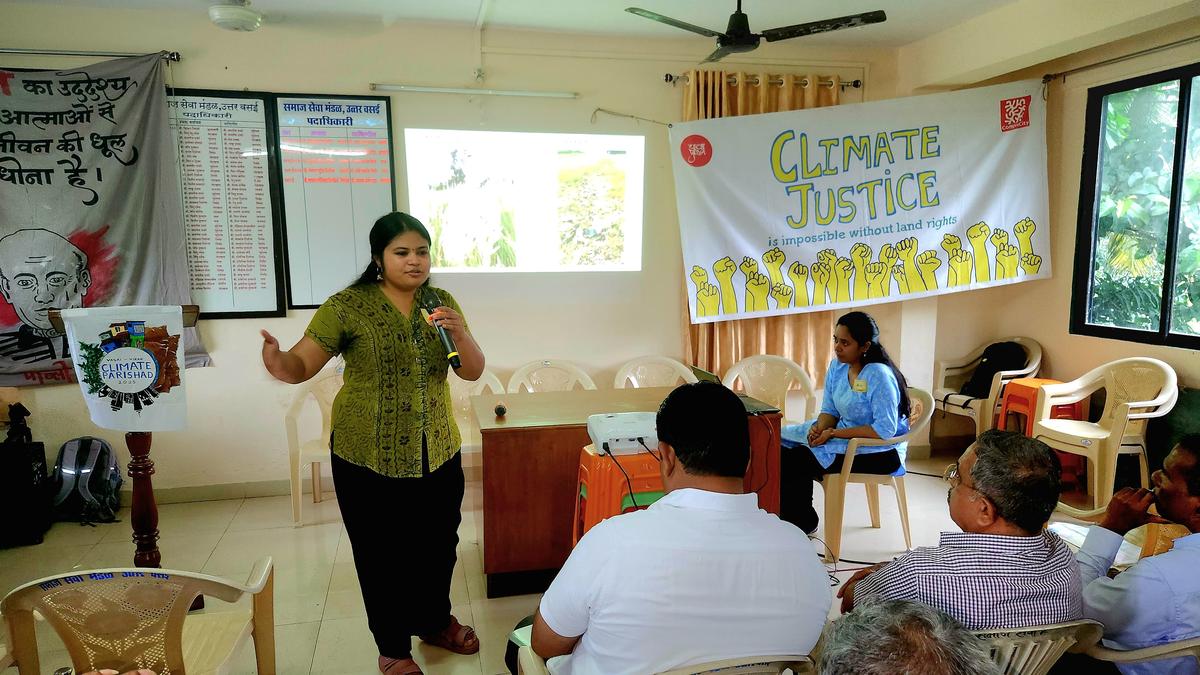Now Reading: Urbanisation Fuels Climate Risks in Mumbai’s Vasai-Virar Ahead of COP30
-
01
Urbanisation Fuels Climate Risks in Mumbai’s Vasai-Virar Ahead of COP30
Urbanisation Fuels Climate Risks in Mumbai’s Vasai-Virar Ahead of COP30

Quick Summary
- Vasai-Virar Climate Risks: The twin city in the Mumbai Metropolitan Region faces increasing vulnerabilities due to rapid urbanization,infrastructure projects,and loss of natural buffers,leading to floods,heat waves,and ecological degradation.
- climate parishad 2025: A two-day summit held on August 23-24 brought together over 150 residents, experts, farmers, and officials to map vulnerabilities and discuss solutions.
- Local concerns:
– Flooding remains a major threat; the 2018 floods displaced thousands. Rural areas are equally affected but frequently enough overlooked in key reports.
– Rising land surface temperatures (up to 44°C) intensify heat stress; tin-roofed homes near industries exacerbate challenges.
– Air and water pollution from RMC plants and sewage contamination worsen public health issues like diarrhoea and skin diseases. Farming losses continue due to flooding and saltwater intrusion.
– Infrastructure projects like the Mumbai-Ahmedabad bullet train corridor risk aggravating flooding and mangrove losses.
- Community Actions:
– Participatory mapping highlighted flood-prone zones, heat islands, pollution hotspots, landslide-risk areas during discussions at the event.
– Historic citizen movements such as Paani Andolan have advocated for preserving local ecosystems since the 1980s.
- Regional Implications: Findings from Vasai-Virar’s Climate Parishad will be forwarded to district officials for integration into India’s COP30 recommendations.
Indian Opinion Analysis
The spotlight on Vasai-Virar underscores how climate risks disproportionately affect rapidly urbanizing peri-coastal regions.Being identified as a “Hotspot Zone” reflects systemic failures in balancing growth with environmental protection. Vulnerabilities stemming from wetland destruction highlight an urgent need for better planning that prioritizes ecological resilience alongside infrastructure growth.
The grassroots engagement showcased during Climate Parishad is notable for its emphasis on participatory governance-a model that could inspire broader climate adaptation strategies across India’s coastal cities. However, challenges such as inadequate municipal budgets or rural exclusion demand more tangible policy interventions focused on equity. As India prepares for COP30 negotiations globally, Vasai-Virar’s case emphasizes that effective solutions require both international commitments and local actions grounded in community needs.Read more: [link provided by source]
























